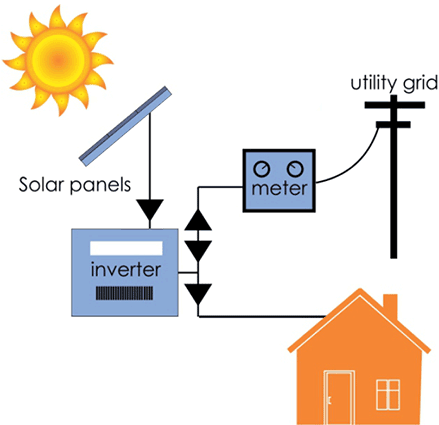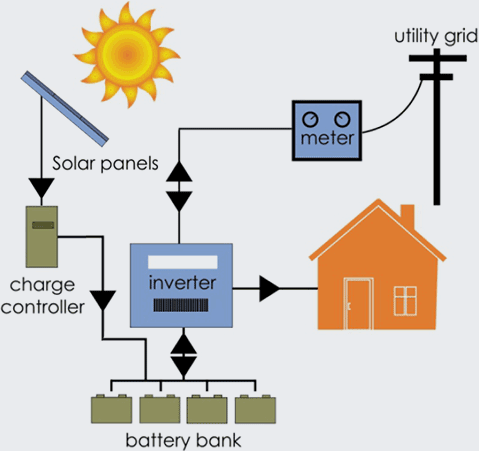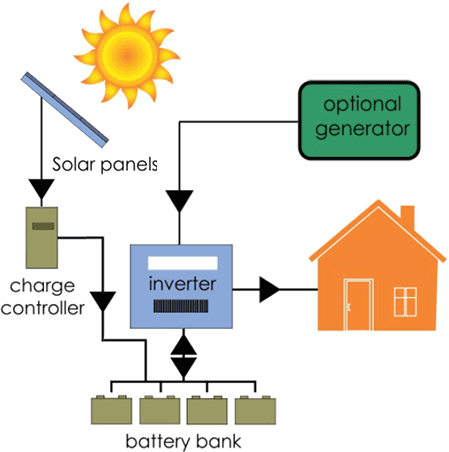
Grid-Tied System (No Battery Back-Up)
Grid-tied systems are so named because they function alongside a working grid supply, and do not normally have any backup storage (battery) capacity.
Your grid tied inverter will utilise the power that you produce from your PV panels first, and top up with the grid, or feed power back into the grid during periods of low demand - if this is allowed in your area.
Generally the most cost-effective systems and easiest installation.
-
Inverters use your own power first before pulling power from the grid.
-
If feed-in is allowed in your area, excess power created can be fed back to the grid.
-
Critically, grid tied systems shut off when the grid itself is down. This means you can't use your PV power during power outages - this is due to local and international safety requirements.
-
No battery backup means there is no protection from power outages built into this system, although grid tied systems can be installed together with backup battery systems to run critical appliances during power cuts.


Grid-Tied/Hybrid Solar System with Battery Storage
These are highly intelligent PV systems that offer the best of power worlds. Tied to the grid during normal operations, using solar power to charge batteries and allowing feed-in back to the grid (if allowed in your area), these systems can convert to stand-alone systems when the grid goes down, inverting power from the solar panels and batteries to provide for the home's needs.
-
Provides grid independence in the event of a grid power outage, pushing solar and battery power to the home.
-
Benefit from grid-tie when required.
-
Achieve high utilization of PV produced power compared to off-grid solutions.
-
More complex design and installation process.
Off-Grid/Standalone Solar System
Off-grid systems are designed to be stand-alone systems that operate without any grid connection. The PV panels need to be sized to generate the full power requirement of the site, and recharge the batteries at the same time, and a large battery bank is needed to store power for periods when solar power is not available.
-
Generally the most expensive configuration due to the high number of batteries needed to store the entire home's power requirements for a few days of backup.
-
May still result in blackouts when batteries are over-used or solar conditions are poor.
-
Off-grid systems often have a backup power source like a generator.












